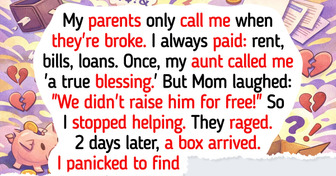Where the hell was your husband when your son was having these issues? Your child should ALWAYS COME FIRST. If gma is so sensitive to honest observations and a Dr.s conclusion then you should send your husband back home to her and protect your son in your home. I know that he misses gma but if his own father won't take his allergies seriously he could end up killing him. I'm not kidding. The very least that your MIL and husband should do is learn what they can about organic food allergies so they DON'T HURT the child.
My Son’s Belly Ached After Every Family Dinner—Grandma’s Secret Was the Reason
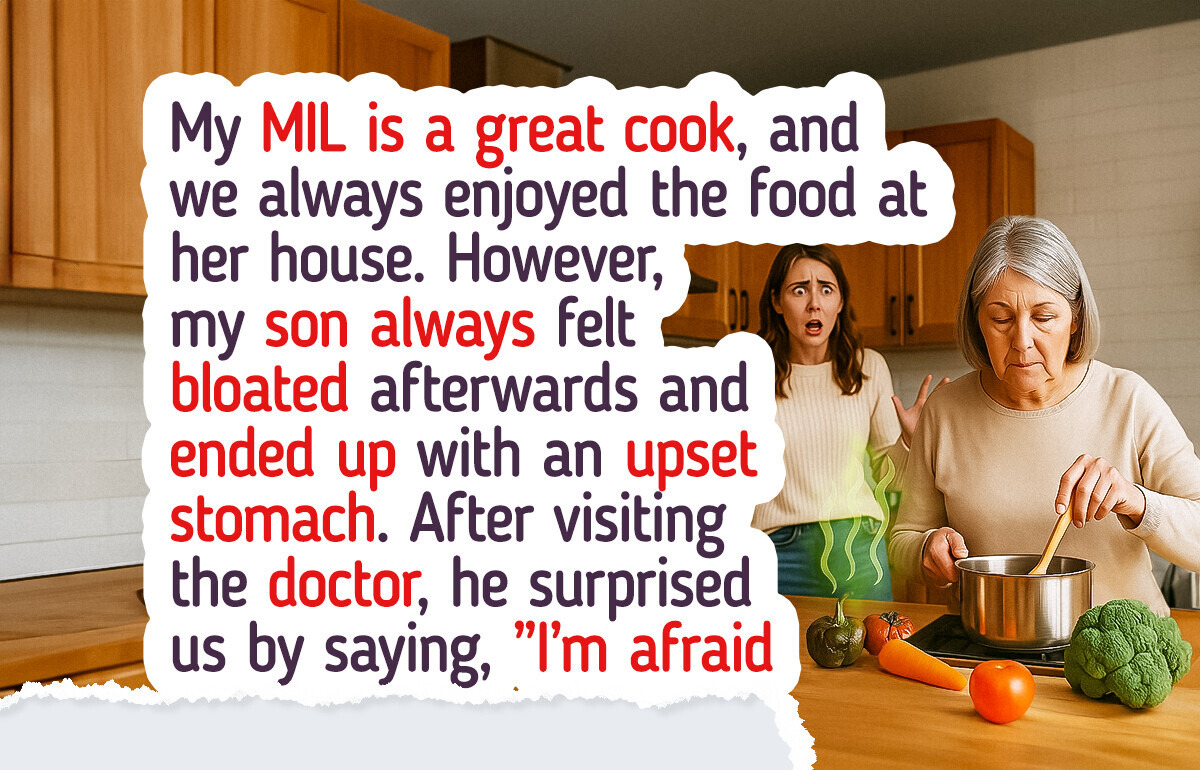
We want family to be a safe place, where love and trust come first. But what happens when something as simple as a meal turns into a source of pain and confusion?
Callie thought weekend dinners at her mother-in-law’s were just that: warm, happy times. Until her son started getting sick after eating there. What followed was a storm of emotions, secrets, and silence that nobody expected. Here’s her story, a raw, honest, and real account of how protecting one child can put everything else at risk.
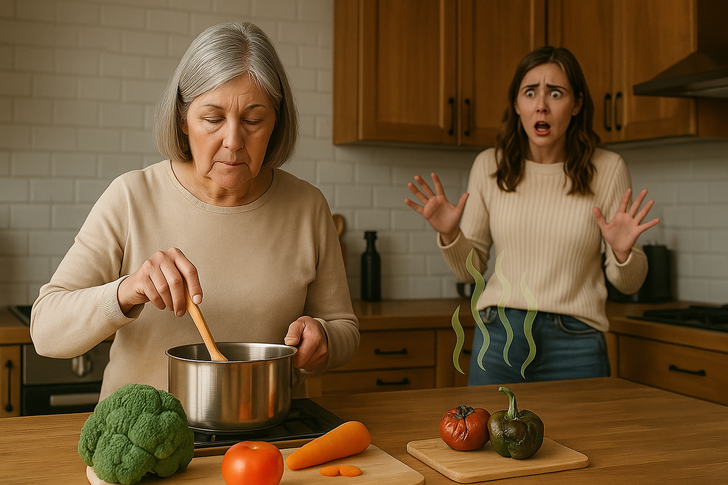
Hi, Bright Side,
I don’t even know how to start this because my head is spinning, and my heart feels like it’s breaking into a thousand pieces. I’m Callie, 36 years old, living in a quiet town in Washington State with my husband Ezra and our 8-year-old son Rowan.
For years, our weekends were simple and joyful: family dinners at my MIL Lorna’s house. She’s known around town for being this passionate, almost obsessive health enthusiast. Everything she cooks is organic, locally sourced, and she refuses to buy anything with preservatives.
She has this gorgeous backyard garden where she grows herbs and vegetables. Rowan loved helping her pick basil or tomatoes. Those days felt like a little bubble of peace and happiness.
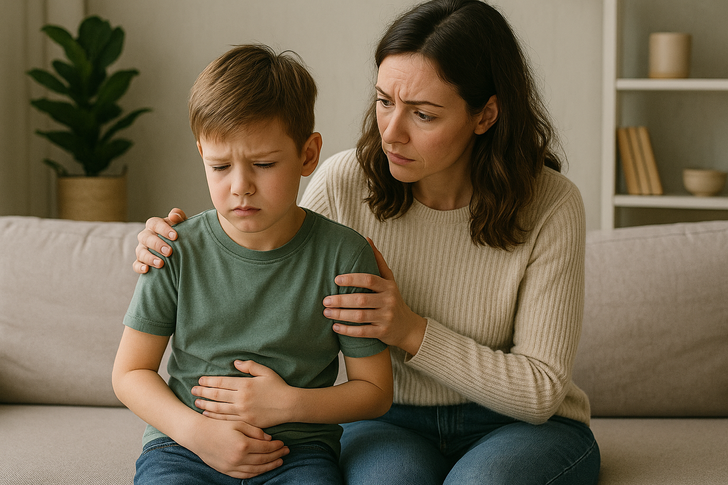
But then, over the past several months, something changed. Every time Rowan ate at Lorna’s house, he started feeling unwell: bloated, nauseous, complaining of stomach pains. Sometimes he even threw up.
At first, I tried to brush it off. Kids get stomach aches sometimes, right? Maybe it was too much dessert or an upset stomach from playing outside. But the symptoms didn’t go away. They became a pattern. Every visit to Lorna’s was followed by Rowan feeling sick.
I hesitated bringing it up to Ezra. I didn’t want to create drama with his mom, especially since she’s been so kind to us all these years. But I couldn’t ignore my gut feeling either. So I quietly started keeping track of what Rowan ate there and how he felt afterward. The connection was impossible to deny.
Finally, I took Rowan to our pediatrician, Dr. Ramirez. He ordered blood tests, stool analysis, and asked a lot of questions. Weeks later, he called me with news that shocked me: Rowan was having an allergic reaction to some residue of the organic food.
Apparently, even though Lorna buys organic food, it’s still possible for produce to be contaminated by nearby conventional farms or by the natural chemicals that organic farming sometimes uses. And Rowan’s sensitive system was reacting badly to something in her kitchen, likely a trace on the fruits or vegetables.
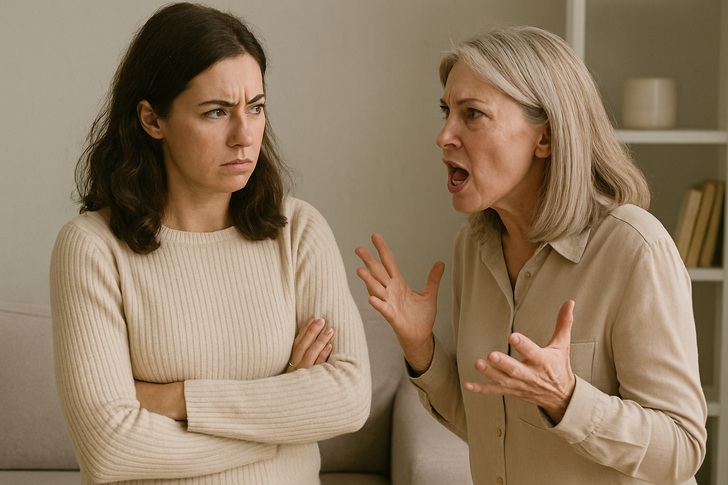
When I told Lorna about the doctor’s theory, I tried to be gentle. I said something like, “Maybe we should try bringing Rowan’s meals from home for now, until we figure out what exactly is causing this reaction.” I honestly thought she would understand. After all, no one wants their grandson to be sick.
But she blew up. I remember her face turning red and her voice trembling with anger. She told me, more or less, that I was accusing her of poisoning Rowan, that she’d spent her whole life feeding her family with love and care, and suddenly I was turning against her.
The conversation escalated quickly. I don’t remember every word, but I do remember feeling like everything I said was twisted into an attack. Ezra tried to calm us down, but he sided more with his mom, saying I was overreacting and making things worse.
Since that day, the atmosphere between us has been icy. Lorna hasn’t called, we stopped visiting her house, and family dinners have disappeared. Ezra seems caught in the middle, confused and upset with me.
And Rowan... he keeps asking when he can see Grandma again, when they can make pancakes together like they used to. He doesn’t understand why we stopped going. It breaks my heart watching him miss her, while I’m terrified of risking his health.
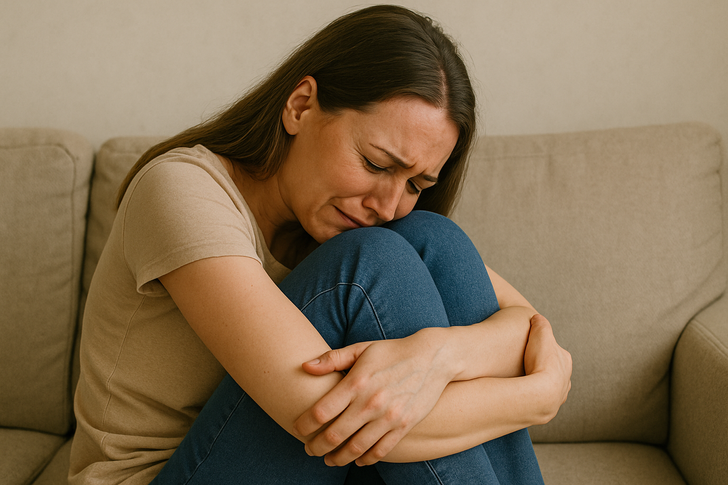
I keep wondering if I did the right thing. Was I too blunt? Should I have found a softer way to approach it? Or maybe I should have just waited longer, endured the tension, for the sake of family peace? But what about Rowan? What if his health was at risk?
I feel torn apart. My son’s health is everything to me, but the price seems unbearably high. Have I ruined my relationship with my husband and his family forever? Is it selfish to protect my child if it means losing those I love?
I don’t know the answers. All I know is I’m exhausted, heartbroken, and desperate for peace.
Thank you for reading.
—Callie
Thank you so much, Callie, for sharing your story with us.
We know it’s not easy to open your heart and share something so personal and painful. We greatly appreciate your courage and trust.
Going through a time like this, where your child’s health and family relationships collide, is a huge test for anyone. Therefore, we want to offer you some tips that could help you navigate this difficult time, take care of Rowan, and, if possible, begin to heal the ties with your family.
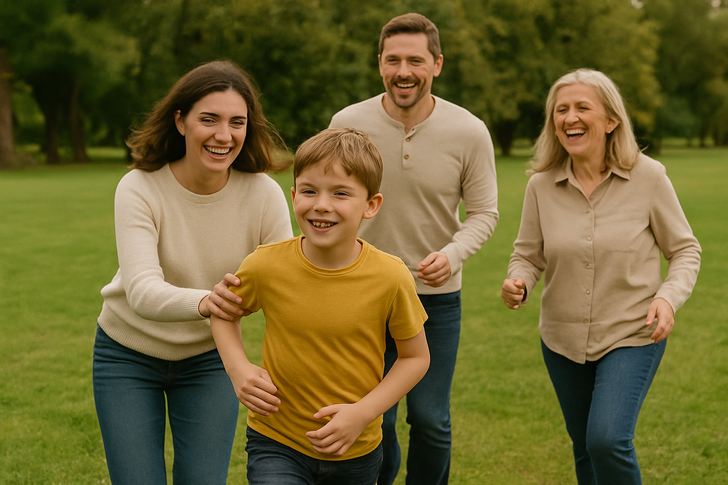
- Don’t apologize for caring for your child, but apologize for how others felt. You can acknowledge that your intention wasn’t to hurt anyone, but to protect Rowan. Sometimes, saying “I’m sorry this hurt” is a way to build a bridge, without having to compromise on the essentials.
- Allow her to feel like she’s lost something, too. Lorna probably doesn’t understand the diagnosis or trust him, but what she does know is that she’s lost a routine with her grandson. Acknowledging her pain (even if you don’t agree with her reaction) can be key to reopening the dialogue.
- Create a “shared menu” of what Rowan can eat. If you reach out again, you could bring a list (approved by the doctor) of safe ingredients. And if she wants to cook, choose something together: perhaps a recipe that adapts, rather than eliminating it completely.
- Put into words what Ezra might be hesitant to say. Sometimes couples don’t choose sides out of malice, but out of fear of conflict. If you sense he’s “more on his mom’s side,” ask him what he needs to feel calm. And tell him what you need to feel supported.
- Allow yourself to live with the contradiction. You can love your mother-in-law and be angry with her at the same time. You may want to share moments again and at the same time fear for your child’s health. Everything doesn’t have to fit perfectly to start repairing something.
Callie, no one can tell you the right path. But we do want to remind you of this: you cared for your child with all your love. And if that love also wants to rebuild what was broken, you will find a way, step by step. You are not alone.
Families aren’t perfect, and sometimes protecting those we love means making choices that hurt, even when we don’t want to. What would you do if you were Callie? Would you speak up or stay quiet? How do you handle situations when your child’s health clashes with family feelings?
We’d love to read your take. Share your thoughts, your own stories, or advice below. You might help someone who’s going through the same thing.
And if Callie’s story resonated with you, you might also want to read about another woman whose relationship with her fiancé’s family shattered completely when their disapproval led to her being cut out of their lives entirely. Because family drama is painful, but sharing our stories can help us heal.
Comments
Kid needs advanced food allergy tests. And probbly medication for gas. Also visits must be relocated to parks, cinemas and lakeside must include scheduled allergyfree diet.
When you get married, you are supposed to seperate from your parents and be connected to your husband and wife.
Related Reads
My MIL Said I Dress Too Revealing, She Wasn’t Ready for My Next Move
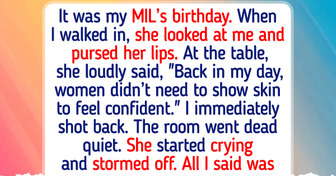
I Only Take My Real Grandchildren to Family Events—Am I Wrong?
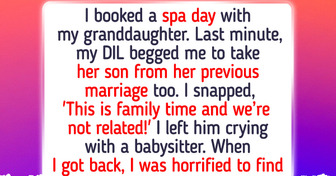
My Ex Wanted Time Off From His Responsibilities, I Decided It Was Time He Faced Them
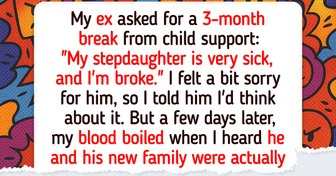
I Refused to Be Treated Like a Maid in My Own Home—So I Changed the Rules
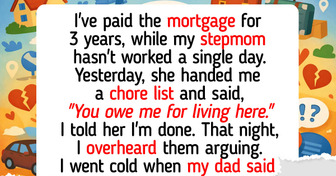
I Thought My Son’s Wedding Was Perfect, but My DIL Says My Dress Ruined Everything

12 Heartwarming Moments That Show How Family Kindness Saves Lives
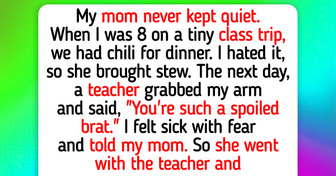
14 Real Moments When Empathy Changed Everything Forever
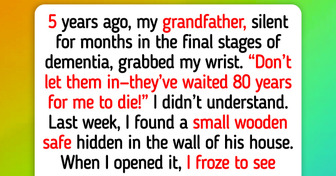
I Refuse to Earn Less Just Because I’m Getting Older
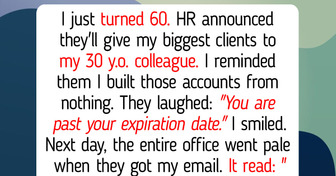
10 Moments Where Kindness Didn’t Argue—It Acted

I Refuse to Be the Villain When My Boss Is the Real Time Thief
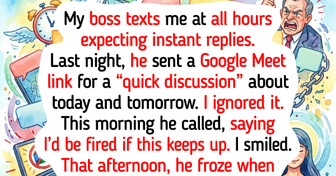
My In-Laws Forced Me to Leave My Vacation Early—They Crossed Every Line
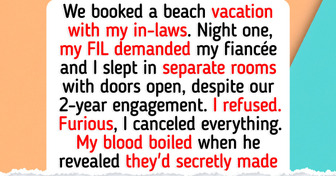
I’m Tired of Being the One My Family Turns to for Money Just Because They Raised Me
